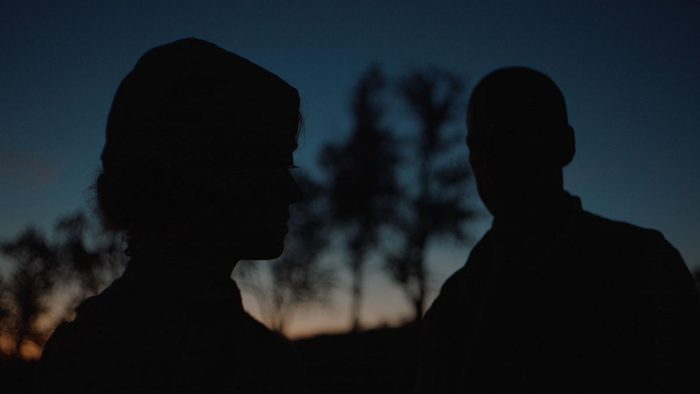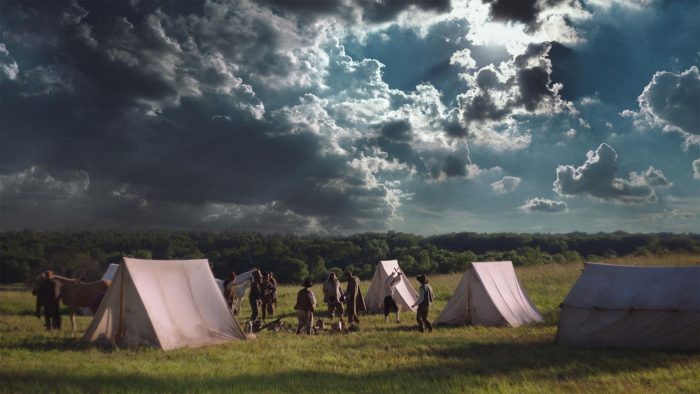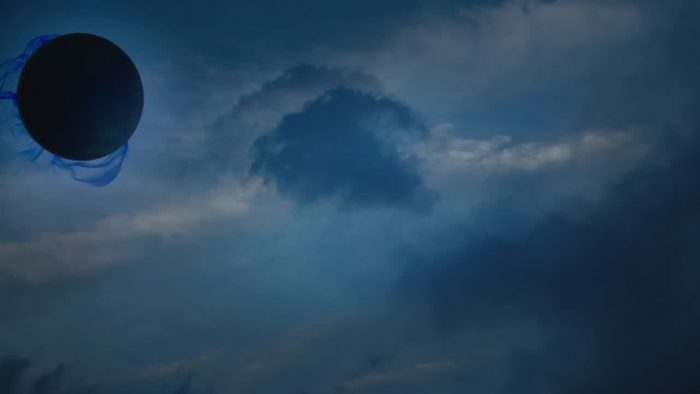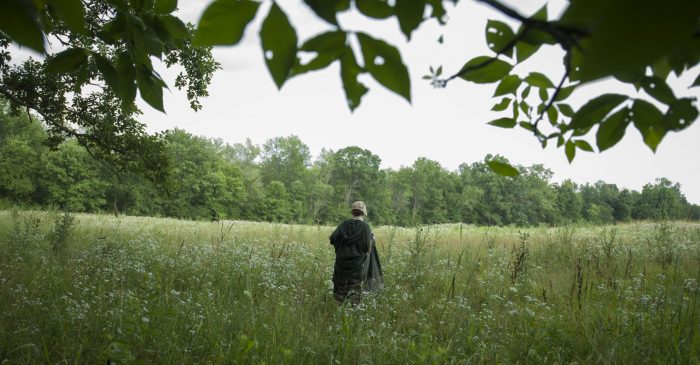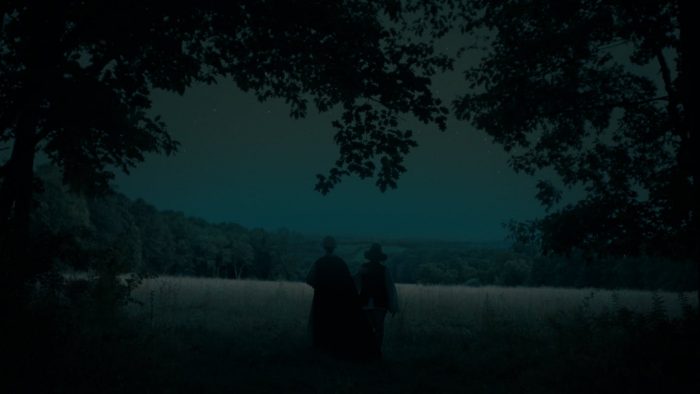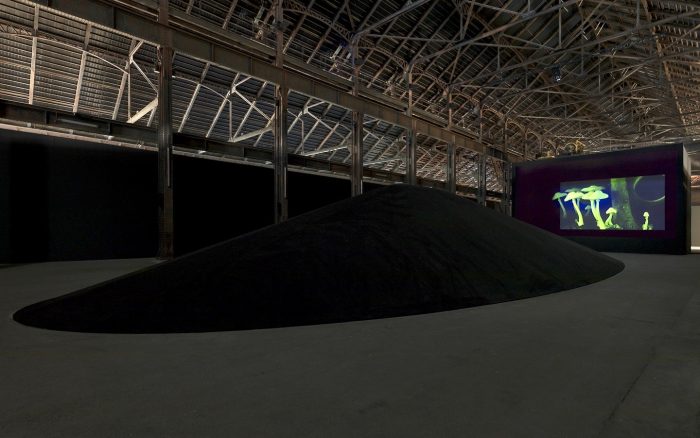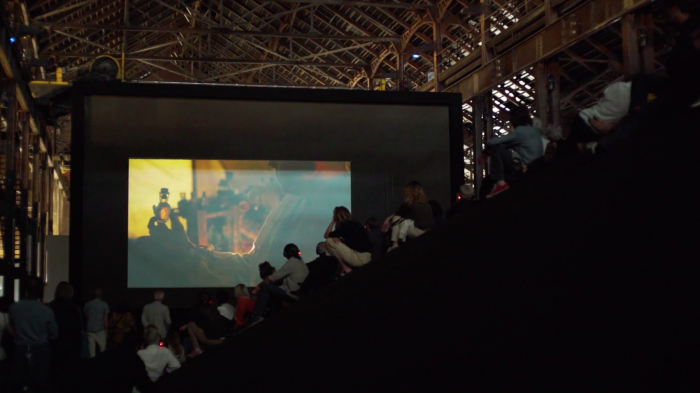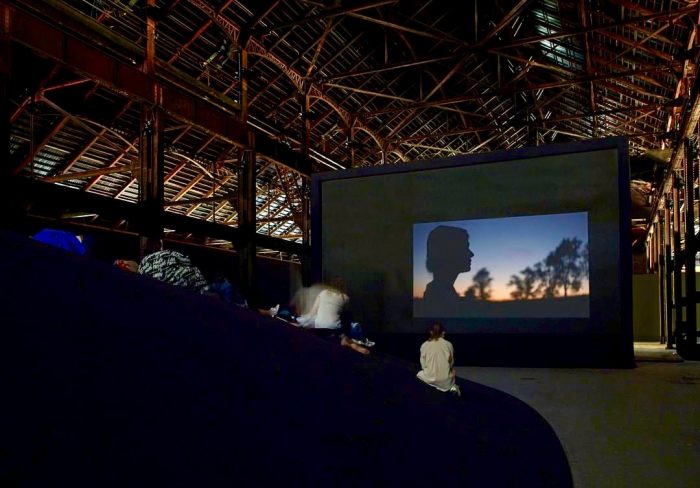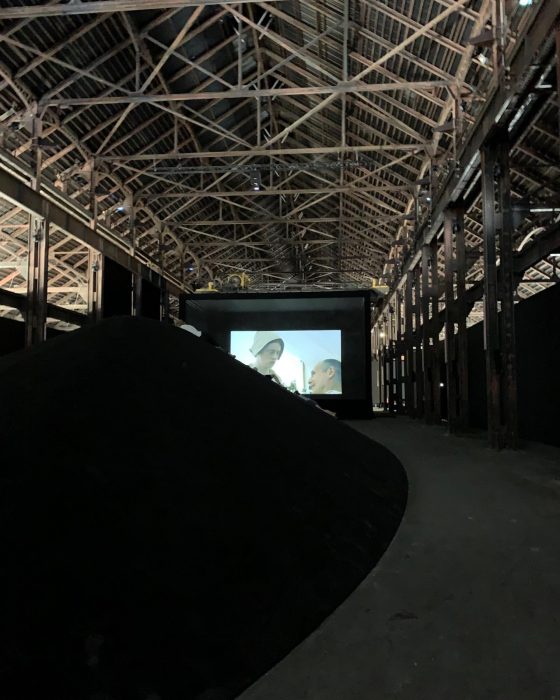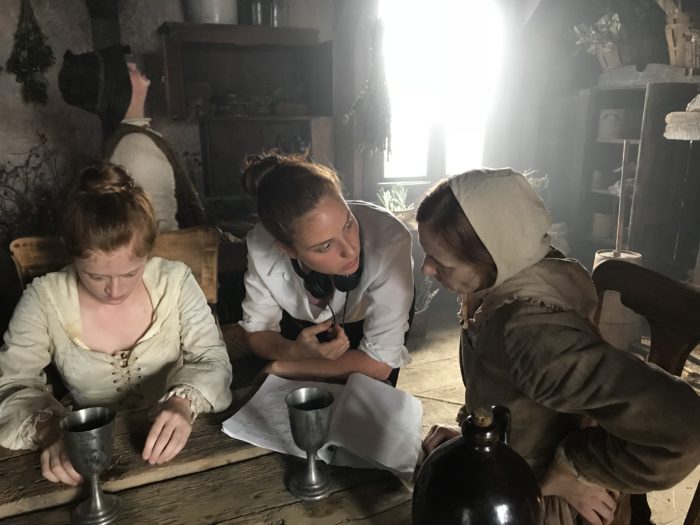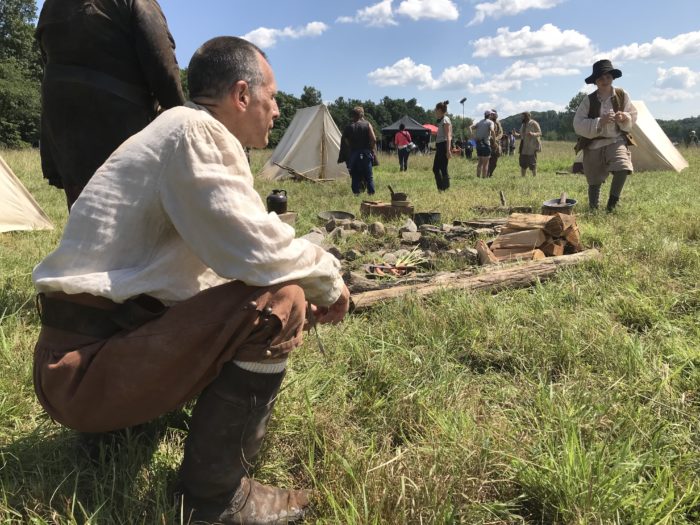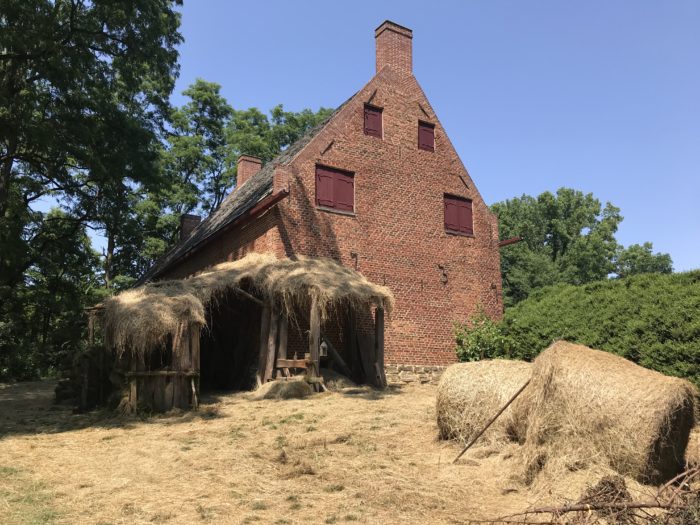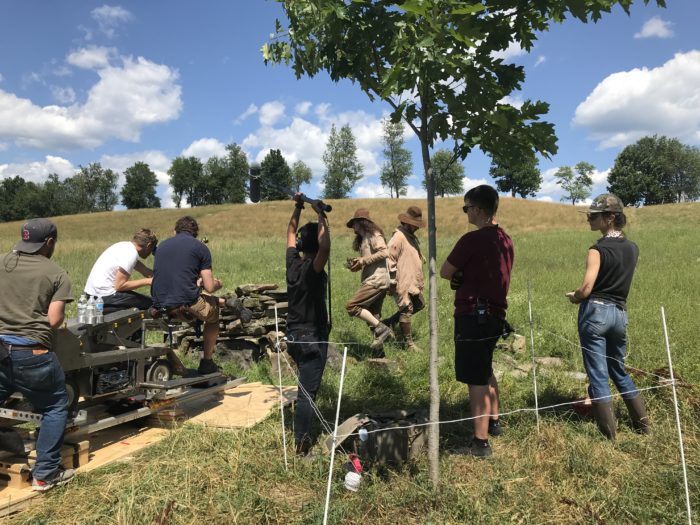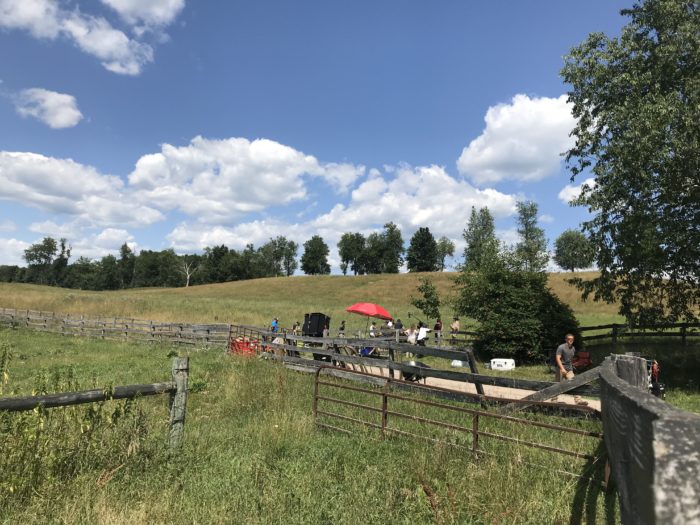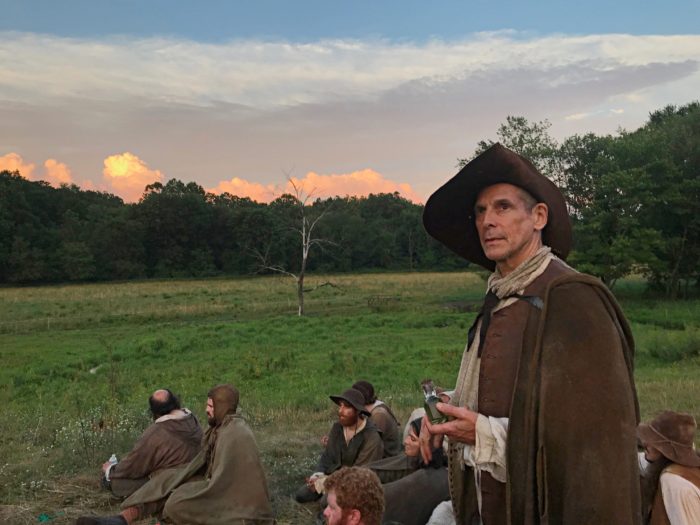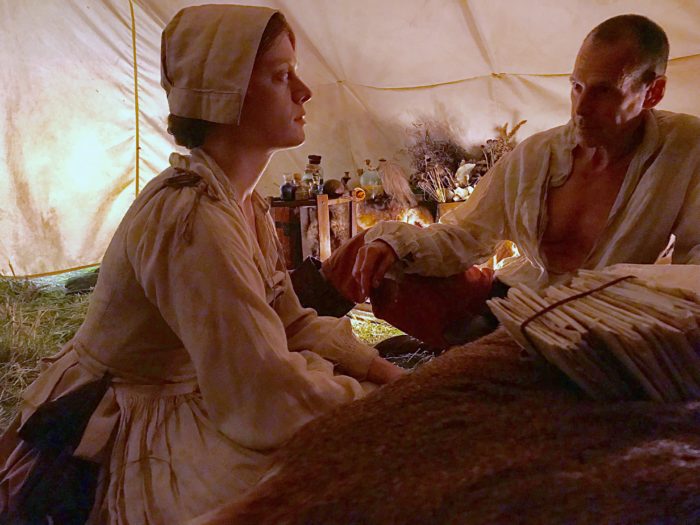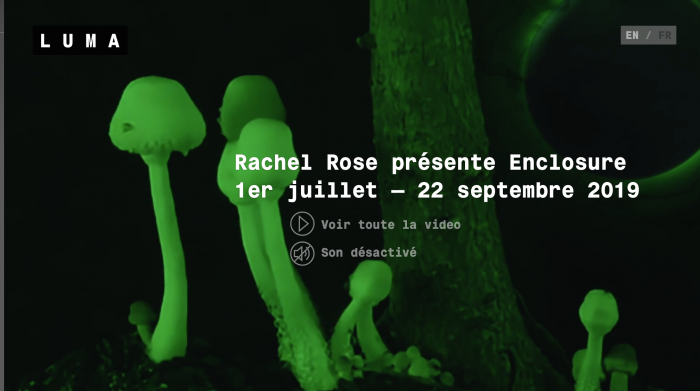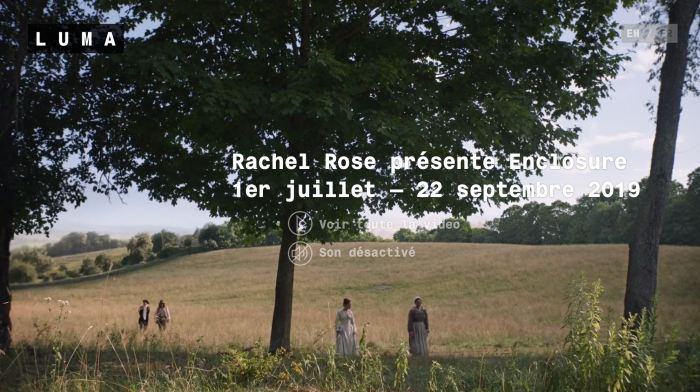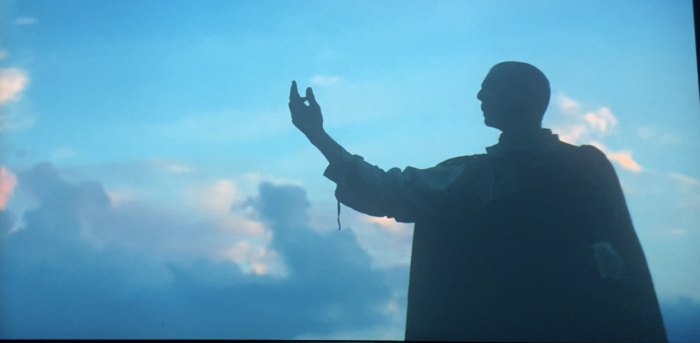
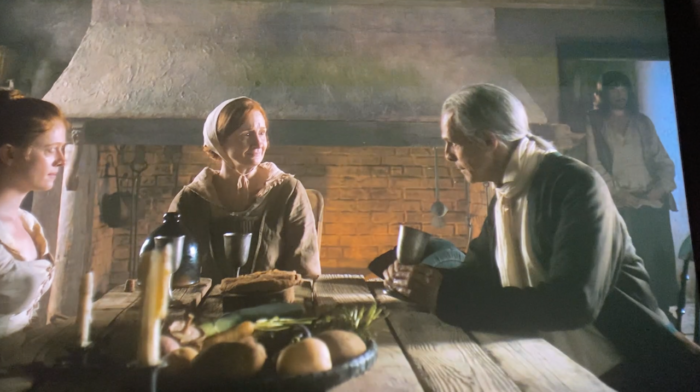
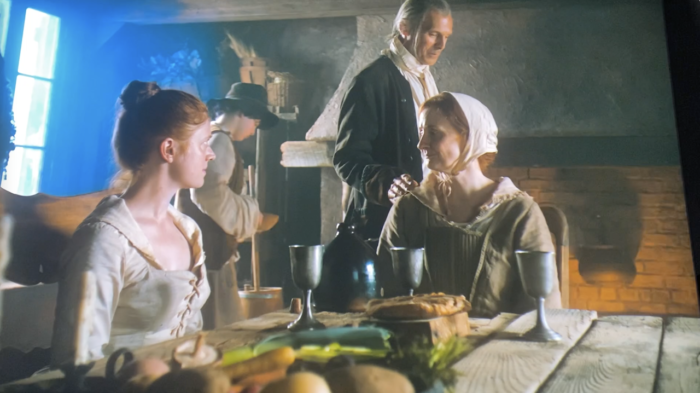
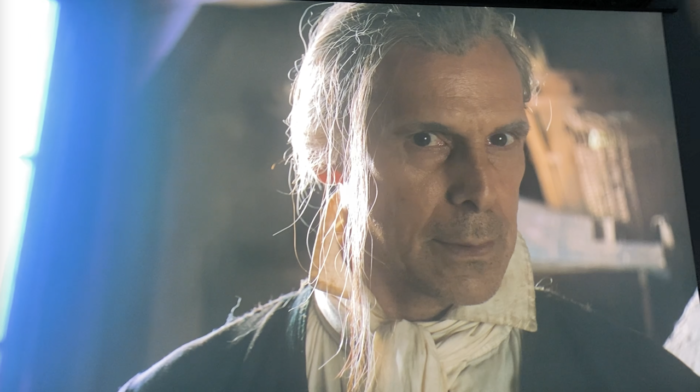
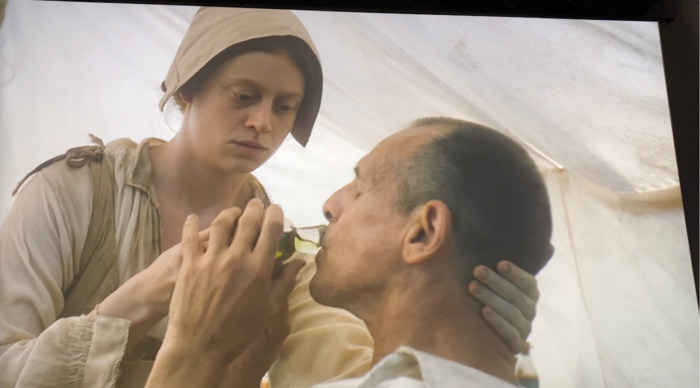
re the Arles, France exhibition, 2019
“In the most total darkness, from the top of a hill designed for the occasion inside the Grande Halle, Rachel Rose’s Enclosure video installation deploys a mysterious and worrying universe in the agrarian England of the 17th century. Presented on holographic screen designed specifically for installation, the work allows the viewer to live through a mystical, immersive experience.”
– from the exhibition publicity
Excerpts from reviews
Full reviews below
“Rachel Rose, one of the brightest young artists working today, uses time as both a subject and a material throughout her dazzling, sometimes puzzling, and very ambitious show “Enclosure,” at the Gladstone gallery . . . The centerpiece is a half-hour film set at the turn of the eighteenth century, in an agrarian English countryside under threats both human (from a cult of land-swindling alchemists) and celestial (from a menacing black orb in the sky). What emerges is an allegory for the ravages of capitalism and industrialization—imagine a magical-realist episode of “Masterpiece Theatre” with Thomas Piketty as a script adviser.” – Andrea K. Scott, The New Yorker
“Almost as perplexing as it is unsettling . . . It’s story of greed, displacement and the supernatural makes it fascinating, eerie and full of the cinematic gusto a variety of film buffs will enjoy. . . . In 17th-century England, the film follows “the Famlee,” a group of swindlers who are trying to buy up as much land as possible for their own purposes. The group is interesting – mimicking a religious cult that practices alchemy – the Famlee is run by the menacing yet charming Jackko (T. Ryder Smith). Beneath Jackko is the protagonist of the story, Recent (Susannah Perkins) who, as the film goes on, goes against the Famlee’s cruel and unusual ways of making money to satisfy their own unique ways of life. Although one may stay for the characters and their development, there’s also another piece of the film that makes the audience wonder – a black floating orb that hovers in the sky throughout the entire film. Used as both a way to highlight the impending sense of doom around the English countryside and as a metaphor for greed, the black orb is ultimately viewed as an object that’s left up to the interpretation of the viewer, while also adding to the film’s ominous undertones.” – Aaron Norton, Musee Magazine
“Enclosure is neither an educational documentary nor a classical fiction,
but a puzzling immersion, aesthetically superb. We enter the dark Great Hall as in a grotto; we arrive at a huge ridge hiding the large holographic screen at the bottom of the building. The spectator is invited to climb onto this soft hill: free to lie down, to extend, to let go, the device elegantly modifies, with softness, our point of view and our experience of the images . . . we drift into reverie . . . Rose is a virtuoso, daring complexity and handling a multitude of layers of meaning and sensuality . . . This striking depth of sign and sensation, this mystical atmosphere that emerges from the film . . . results greatly from the editing. It follows the principle of “winking of the eye”, creating discontinuity in the human vision . . . creating a break that is conducive to new connections, opening up the senses that are normally censored by a too-didactic arrangement. . . . Art is then one of our last paths to approach this magical thought, this mystical and sacred thrill, before it is drowned “in the icy waters of selfish calculation” by the emerging bourgeoisie . . . I exit the space a little groggy and somewhat baffled by the experience, but definitely seduced. . . . Art is indeed today the vanguard of a new project of society, carrier of new diplomacies and new partnerships with our environment. Returning to the sources of capitalism and putting them into perspective, Rachel Rose . . . with a new perceptive-device and this experience of augmented reality, is bringing us in tune with the world.” – Yves Sorel, “The Closed and the Open”
“A captivating story of madness and witchcraft, driven by a clever plot . . . operatic . . . a sensuality that transports the viewer into a new world where magic meets reason. The film reminds the viewer of the potential of this magic and invites them to question the impact of this pre-industrial moment on our modern world.” – Journal Ventilo
The title of the work refers to the process of dividing common land with fences or barriers, often for the purpose of making it more productive. Raised by Karl Marx in ‘Das Capital’ (1867), the issue of enclosure has established the roots of capitalism and resulted in a massive displacement of populations, transforming the way humans live. . . . A group of vagabonds travels around England trying to convince local peasants to sell their land rights in exchange for a new currency called ‘paper cash’. Jaccko, an alchemist and leader of a group called the ‘Famlee’, orders young orphans to spy on families to better manipulate them in order to take over their land. Recent is a young woman with magical powers on whom Jaccko holds a tight psychological grip. But the manipulated also manipulate . . . ” – Angela Blanc, This is Tomorrow magazine
On set
Publicity
Full reviews
The New Yorker, Andrea K. Scott – I’m always amused by the description of film, in the context of art, as a “time-based medium,” as if painting and sculpture don’t require sustained attention. Rachel Rose, one of the brightest young artists working today, uses time as both a subject and a material throughout her dazzling, sometimes puzzling, and very ambitious show “Enclosure,” at the Gladstone gallery through Feb. 26. The centerpiece is a half-hour film set at the turn of the eighteenth century, in an agrarian English countryside under threats both human (from a cult of land-swindling alchemists) and celestial (from a menacing black orb in the sky). What emerges is an allegory for the ravages of capitalism and industrialization—imagine a magical-realist episode of “Masterpiece Theatre” with Thomas Piketty as a script adviser. Spotlit on the walls of the otherwise darkened gallery are landscape paintings, on loan from the Yale Center for British Art, by John Constable, Thomas Gainsborough, and other Romantics, encircling the film like a constellation of distant stars. Five strangely exquisite sculptures—conceptual provocations about how past becomes present—combine new blown-glass elements with geological samples that are between six million and two hundred and ninety million years old. 02.07.22
Musee Magazine, Aaron Norton – A period piece shrouded in mystery and the natural beauty set in 17th-century England – Rachel Rose’s 2019 short film, Enclosure, is a film that’s almost as perplexing as it is unsettling.
Having never before been introduced to the work of Rachel Rose, it was exciting to see how her film would live up to my (unknowing) expectations. For me, Enclosure resembles some of the amazing new-wave horror films that have become synonymous with the film genre because of their dazzling cinematography and gripping storytelling – films like Robert Eggers’ The Lighthouse or The Witch. Enclosure falls in that same category of style and substance. With a runtime of 30-minutes, Enclosure is a slow paced film, but it’s story of greed, displacement and the supernatural makes it fascinating, eerie and full of the cinematic gusto a variety of film buffs will enjoy.
For those who are unaware of the 36-year-old visual artist’s work, Rachel Rose’s work has been praised for its artistic innovation and top-notch storytelling! She’s got the style, the vision and most certainly the talent to deserve the attention she’s garnered throughout her career.
In 17th-century England, the film follows “the Famlee,” a group of swindlers who are trying to buy up as much land as possible for their own purposes. The group is interesting – mimicking a religious cult that practices alchemy – the Famlee is run by the menacing yet charming Jackko (T. Ryder Smith). Beneath Jackko is the protagonist of the story, Recent (Susannah Perkins) who, as the film goes on, goes against the Famlee’s cruel and unusual ways of making money to satisfy their own unique ways of life.
Although one may stay for the characters and their development, there’s also another piece of the film that makes the audience wonder – a black floating orb that hovers in the sky throughout the entire film. Used as both a way to highlight the impending sense of doom around the English countryside and as a metaphor for greed, the black orb is ultimately viewed as an object that’s left up to the interpretation of the viewer, while also adding to the film’s ominous undertones.
I was intrigued by the film’s well-crafted cacophony of sounds throughout the film’s entirety. Along with her compelling camera work, Rose is able to shine a light on the beauty of nature by using natural lighting, shadows and long shots associated with Kinderhook Farm, a lush area outside of Albany, NY which was used as the predominant shooting location for the film.
For those who enjoy darker films of any kind, but especially ones with darker – more supernatural undertones – I highly recommend 2019s Enclosure! The film commands your attention and leaves the audience wanting to see more. It’s not just another notch in Rachel Rose’s cinematic belt, but rather, an excellent example of her visual presentation and direction. 3.11.22
This is Tomorrow magazine, Angela Blanc – ‘Would you not too hunt the god who killed your child for no reason?’ asks a vagabond, playing the role of prophet by predicting future misfortunes in a pre-capitalist society. In her newest film, ‘Enclosure’ (2019), on view at Luma Foundation, Arles, New-York based artist Rachel Rose (b. 1986) continues to expand on her notions of land, ownership, and violence against women in the context of early seventeenth-century rural England. The work attests to the artist’s fluency in cinematic conventions even as she pushes their boundaries.
In early 2019, Rachel Rose was presenting her first filmic work with featured actors at Pilar Corrias (London), ‘Wil-o-Wisp’, shedding light on women’s shifting role within society and their relations to magic on the threshold of the Industrial Revolution. In the space, three egg-shaped glass objects were lying on a white carpet, distorting images of the film and evoking the alchemical practices of the time. With ‘Enclosure’, Rose has created a far darker atmosphere. Spectators can sit upon a large brown dune in the massive nave of Luma’s industrial cathedral, a former rail yard transformed in 2007 into a cultural space dedicated to multimedia artworks. Here, a holographic screen will alter your vision, and your experience will vary according to your spatial relation to the screen. While such a complex technological apparatus could easily be overwhelming, the installation immerses its audience in a virtual space and becomes an extension of the story unfolding in ‘Enclosure’.
The title of the work refers to the process of dividing common land with fences or barriers, often for the purpose of making it more productive. Raised by Karl Marx in ‘Das Capital’ (1867), the issue of enclosure has established the roots of capitalism and resulted in a massive displacement of populations, transforming the way humans live.
This historic economic and environmental upheaval serves as the backstory for a scam set in an eerie, yet deeply rational world. In Rose’s film, humans seem to live in harmony with their environment, which appears magical, mystical and threatening. In the first scene, an unstable sky turning from deep blue to blood orange and the menacing presence of a large smoking black orb herald no good fortunes. Throughout the film, nature is pictured wounded and disoriented; reimagined as two ‘hungry’ bears, a bird’s carcass, a fish decomposing, and mushrooms growing and glowing.
A group of vagabonds travels around England trying to convince local peasants to sell their land rights in exchange for a new currency called ‘paper cash’. Jaccko, an alchemist and leader of a group called the ‘Famlee’, orders young orphans to spy on families to better manipulate them in order to take over their land. Recent is a young woman with magical powers on whom Jaccko holds a tight psychological grip. But the manipulated also manipulate as we witness Recent tricking a new victim, the mother of a ‘cursed’ child who refuses measures of enclosure in name of the Brotherhood of the Holy Spirit. Because of her political beliefs, the cursed child, named Marla, is tied up and hidden. As she shouts, her words resonate strongly beyond the context of the film. Women will have the most to lose from land dispossession, becoming gradually confined to reproductive labour. In ‘Enclosure’, everything is a matter of power relations: between men and women, nobles and peasants, parents and children, humans and animals, persecutors and victims.
Integral to the poetic force of Rose’s art are her rich, seductive and painterly cinematic images, her use of non-diegetic sound, precise camera pans, and her shots breaking any editing continuity. All these contribute to the depiction of a world in which nonlinear time and unstable spatial cues blur the boundary between the occult and the rational. The artist intertwines different time streams, immersing the spectator in the past in order to shed light on the fragilities of the present and the unpredictability and instability of the future. 9.25.2019
Screen Slate magazine, Rachel Seidel – Rural living is often misunderstood. Far from an idyllic alternative to stressful and industrious urban life, the wide swaths of farmland and forest are subject to the same strains as the city under capitalism––the ecosystem changes to support agrarian industries, the land’s value fluctuates with the markets, and the suburbs slowly engulf once quiet communities. Rachel Rose’s Enclosure (2019) captures the terror created by the clash of law and ideals in which the peasantry falls victim to the false promises of a new economy. Commissioned by the Park Avenue Armory and originally set to premiere at the venue in Spring 2020, the film takes place in rural 17th century England when a series of laws called the Inclosure Acts that decreed property ownership of open fields, effectively ending common land for the use of common people. Taking advantage of these laws, a group of nomads led by the shaman-like alchemist Jaccko (T. Ryder Smith) formulate a scheme to buy once-free tracts with fake currency, robbing the farmers of their land and livelihood. One of these nomads, a teenaged girl named Recent (Susannah Perkins), is tasked to spy on a widow and her two children, who Jaccko plans to defraud. After witnessing the events that take place on the farm, Recent begins to question her allegiance to the group and her role in the dispossession of others. All the while, supernatural phenomena like a mystic “curse” and glowing orb in the sky occur, affecting the safety of the farmers and nomads alike. At Gladstone Gallery, Rose’s film is screened alongside two new series by the artist––one of paintings and one of mixed-media sculptures––and a selection of landscapes by English masters such as Thomas Gainsborough and John Constable. Invoking the aesthetic ideals of art during this period, Rose leans into the uncanny by warping once serene landscapes of the English countryside to reflect the rapid changes unfolding in the film. As a director, Rose showcases her talent for world-building and setting a tone through subtle visual cues. Recent’s face is framed in tight close-ups, signaling her isolation from both the nomads and society at large. The rural, wooded settings create an eeriness reminiscent of ’70s folk-horror classics such as The Wicker Man (1973) or Witchfinder General (1968)––films in which, similarly, the presumed innocence of rural life shatters in the face of greed and modernity. The glowing alien sun that can be seen in many of the wide landscape shots adds another layer of menace. The entire atmosphere of Enclosure is claustrophobic, providing a reminder of the evils––capitalism, the future, and the unknown––encroaching on these communities under a new legal code that renders their former way of life obsolete. 2.22.2022
